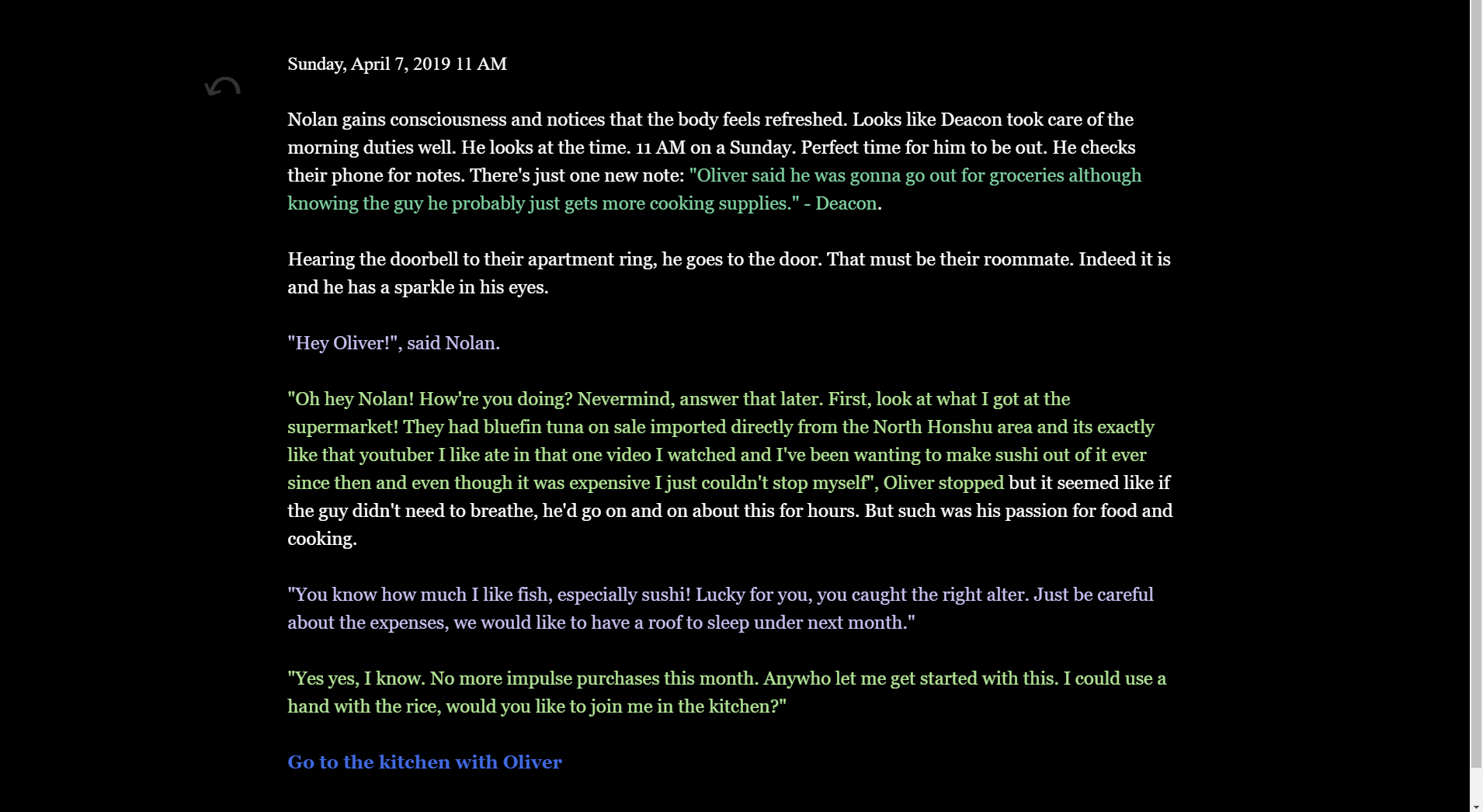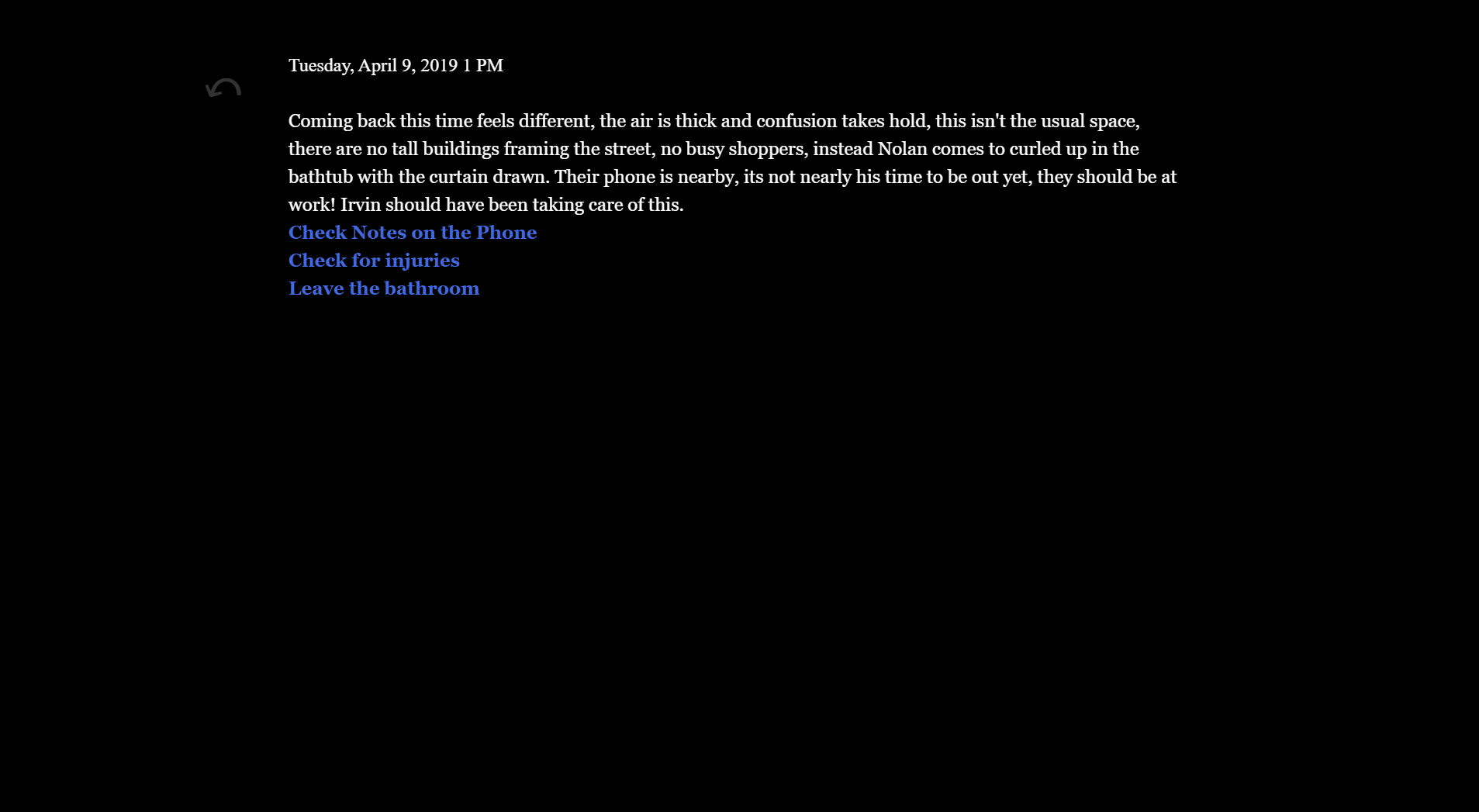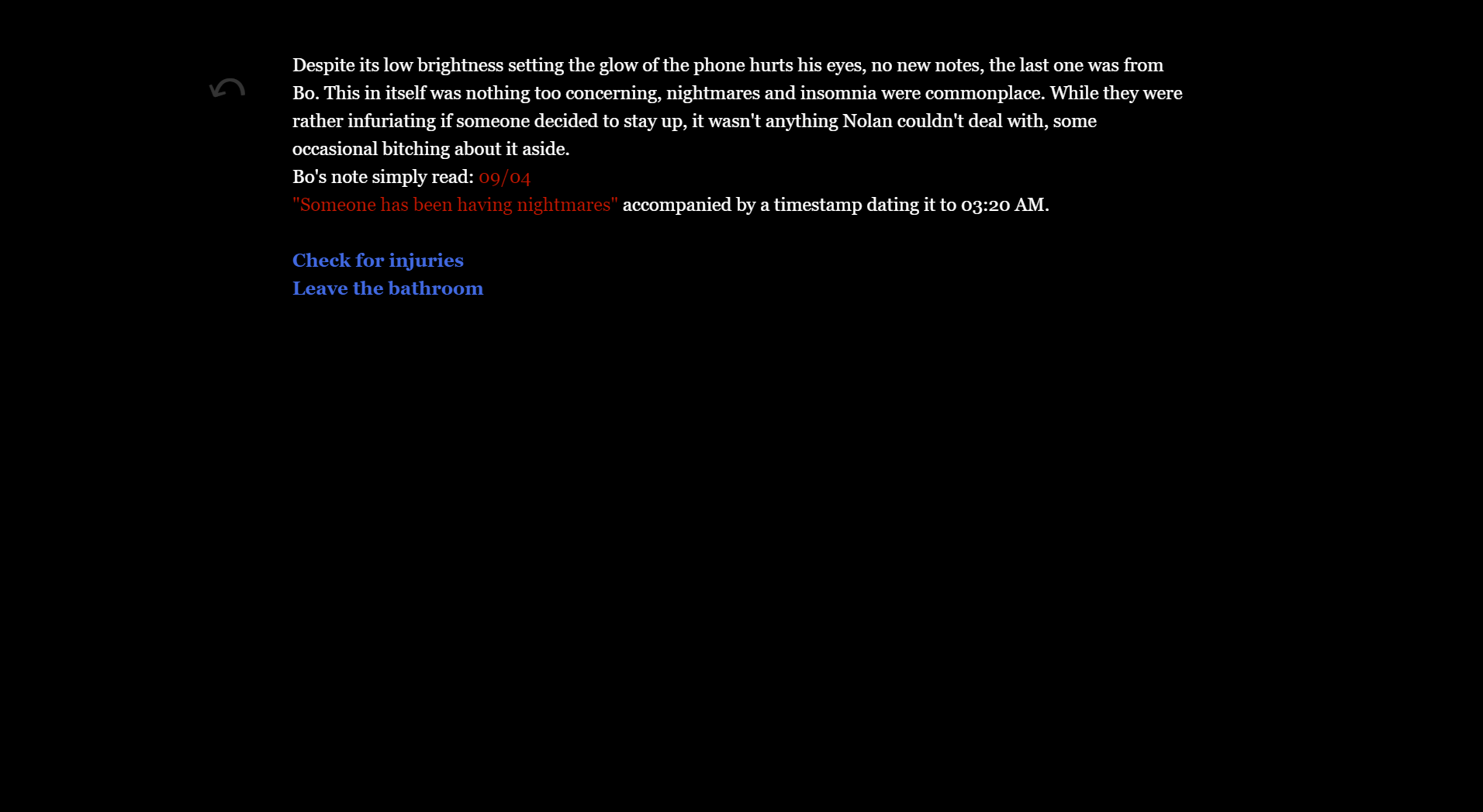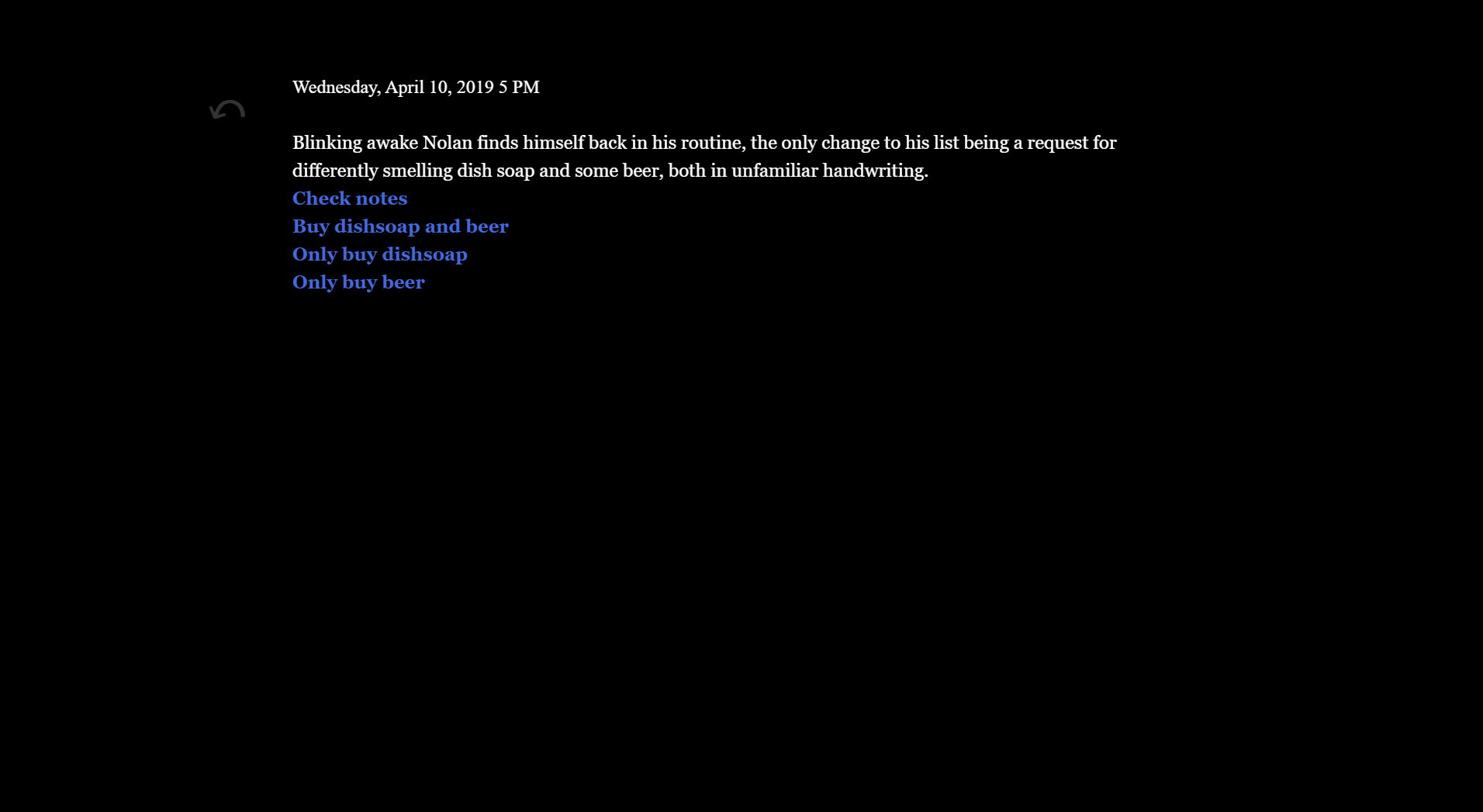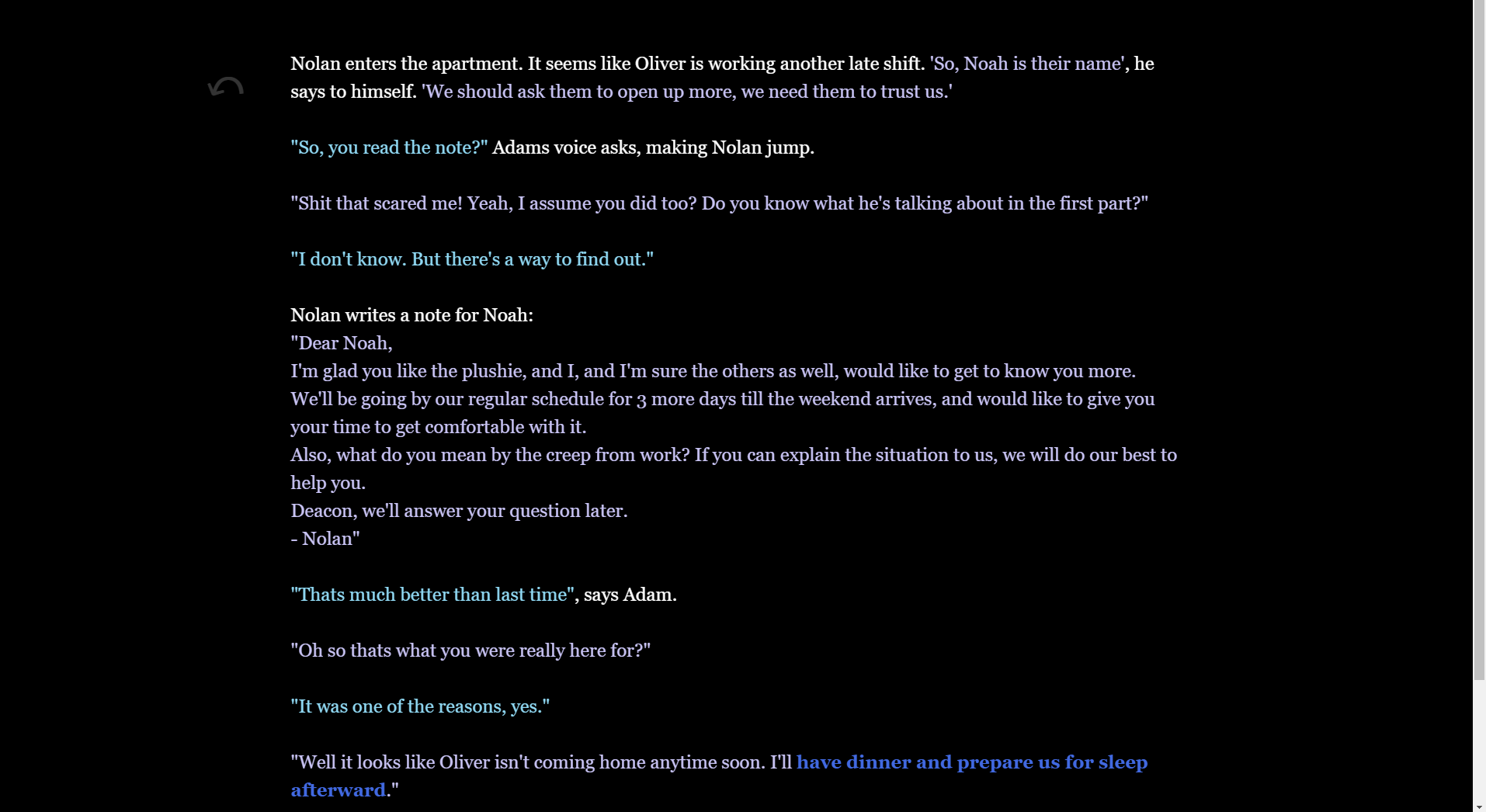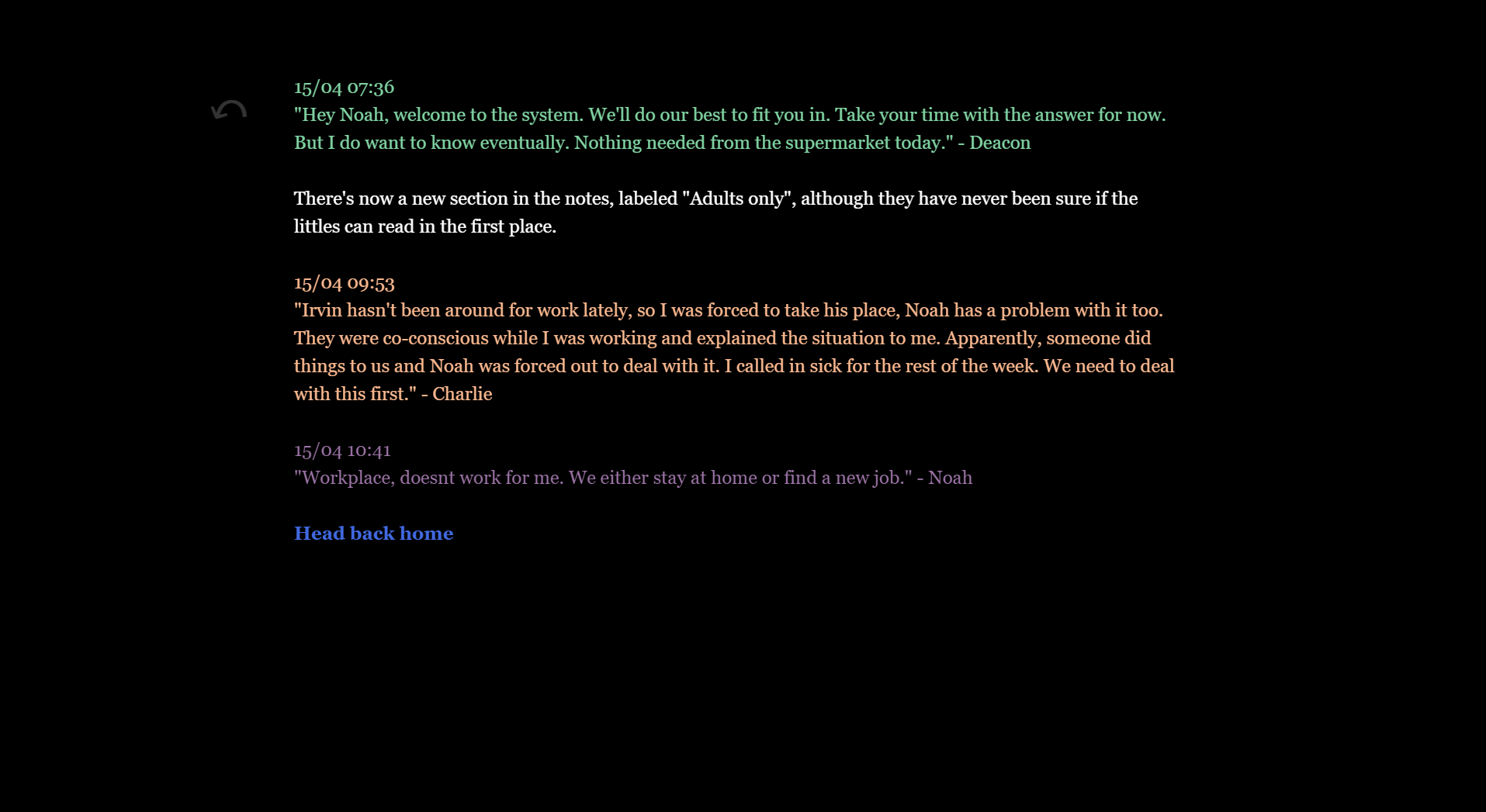The System
The System is a text-based narrative game that tries to make the player experience life through the point-of-view of people with DID. The game encapsulates a few weeks in which the system gets a new member and how they deal with getting to know them and incorporating them into their lives.
It was developed for a course taken in June 2019 as part of my Masters degree. The game was built using Twine. I worked in a team of two on this, and we both worked on half of the narrative.
The game can be found at zarroc.itch.io/the-system, and here’s some screenshots:
Following are some of my thoughts on the overall experience of developing the app. If you prefer to not read the rest of the post, you can go back to the portfolio home by clicking here.
Background
As part of a course at my University, we were asked to make a game using one of the game engines we were introduced to as part of the course. The theme was supposed to revolve around gender issues, diversity, accessibility, etc., as that was what the course was about. We had to choose between Bitsy, Scratch, Twine, Pico-8 and Commodore 64, all of which we had worked with at least once during the semester. We decided to go with Twine as we wanted to focus more on the narrative than the aesthetic aspects of the game.
Development Process
Since the topic was open-ended, we went with a game in which the player had to play a Dissociative Identity Disorder (DID) system in hopes of raising awareness about DID. We chose this topic since we knew that other groups in the course would be focusing on issues related to gender or diversity, and we wanted to showcase something that perhaps not many people know about.
I was unaware of DID when I started working on this game, so my teammate had to guide me through what it is and how systems function. We laid out a plot together and split it up into two parts. We worked on the parts individually, and at the end, we reviewed each other’s texts to proofread and suggest changes.
Final Thoughts. What did I learn?
It ended up being a well-received game, and we succeeded in making others aware of DID, even if it was only for a small group of 25 people.
I was generally never good at writing stories or using words to express what I had in my mind. I learnt quite a lot about how they are structured and what common mistakes some beginner writers make. I realised that my writing included a lot of showing and telling, and my teammate helped correct many of those phrases into just showing and not telling. It was great to work as a writer and not a programmer/designer for once, and I’d definitely do it again.
Thanks for reading!
Back to Games
